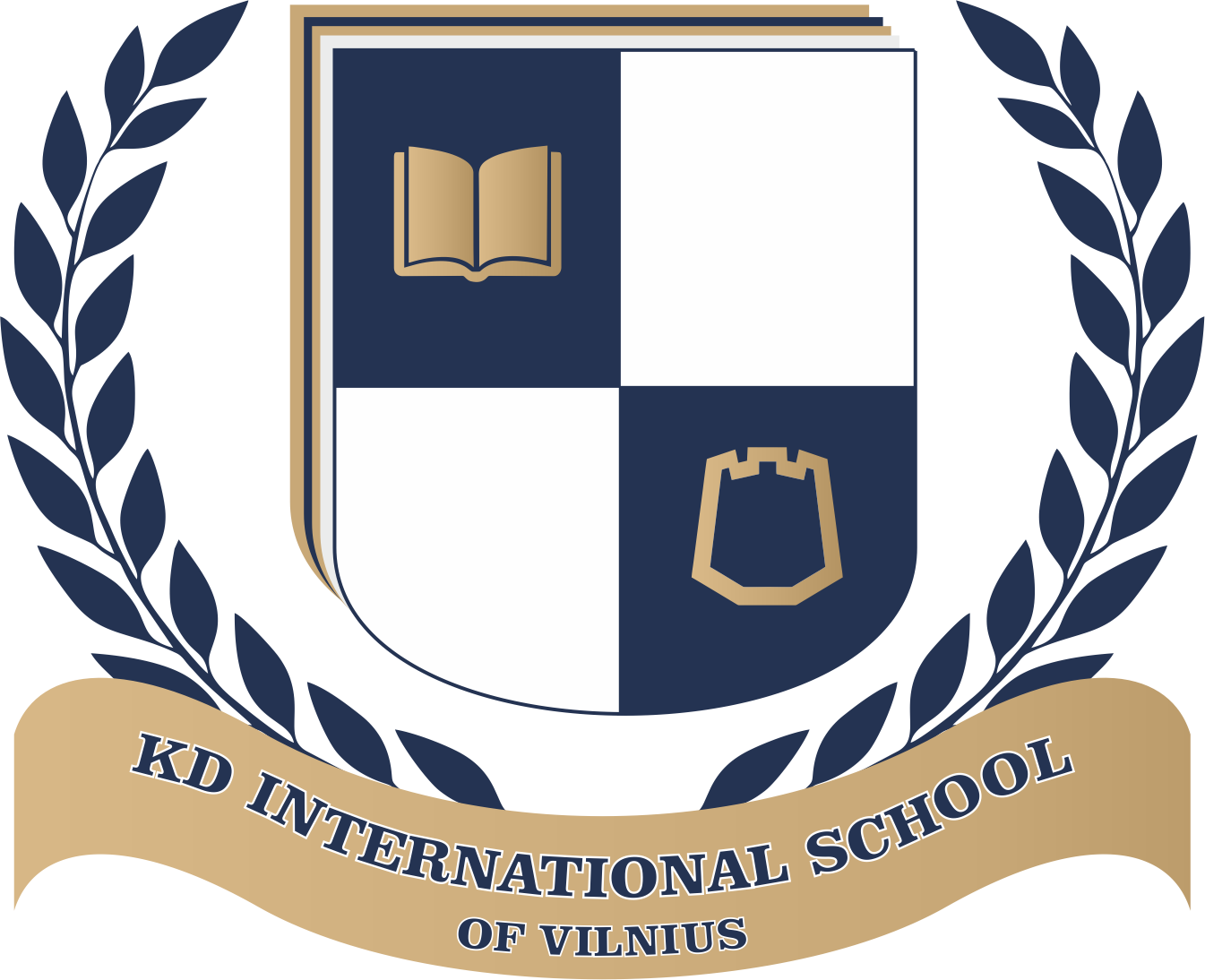Distinctiveness of Education

Akredituota Kembridžo tarptautinė mokykla
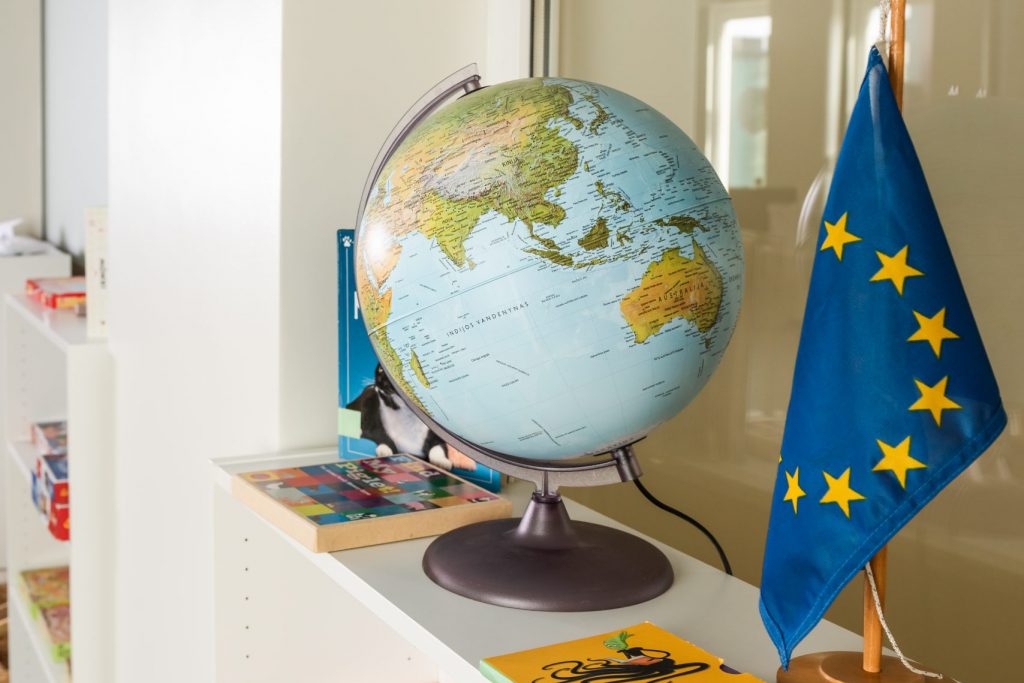
KD tarptautinė mokykla, prisijungusi prie Kembridžo ugdymo bendruomenės, dirba su lyderiaujančiais ugdymo profesionalais, gauna pagalbą integruojant ugdymo programas, dvikalbę praktiką ir vykdant kasdienę veiklą: rengiant ugdymo planus, vertinimo sistemą, mokytojų kvalifikacijos tobulinimą, įrengiant klases, naudojantis gerąja patirtimi iš 10,000 kitų Kembridžo mokyklų visame pasaulyje.
KD mokykloje ugdymas vyksta integruojant Bendrasias pradinio ugdymo bei Kembridžo programas, taip pat turime tarptautines klases, kur ugdymas vyksta tik anglų kalba.
XXI century education in Katino Dienelės

Most important in our school is:
• Learn how to learn
• Raise questions
• Clarify/solve problems
• Argue your opinion/choices
We are creating today‘s and tomorrow’s education. Ability to collect information is not a hard task for all of us, but it is crucial to be able to choose the information. In today‘s society it is important to not just follow orders, but also to take initiative in creation of our future‘s success. We believe, that the best way for our children to take responsibility for their choices and decisions is by learning how to learn, improving their personal motivation, creating their own future.
Our learning environment is calm, respectful for child, enabling the child to take responsibility for their future‘s creation. We are raising self-confident, determined and active citizens of the world creating paths in our modern society throughout their own experience.
Learning through playing
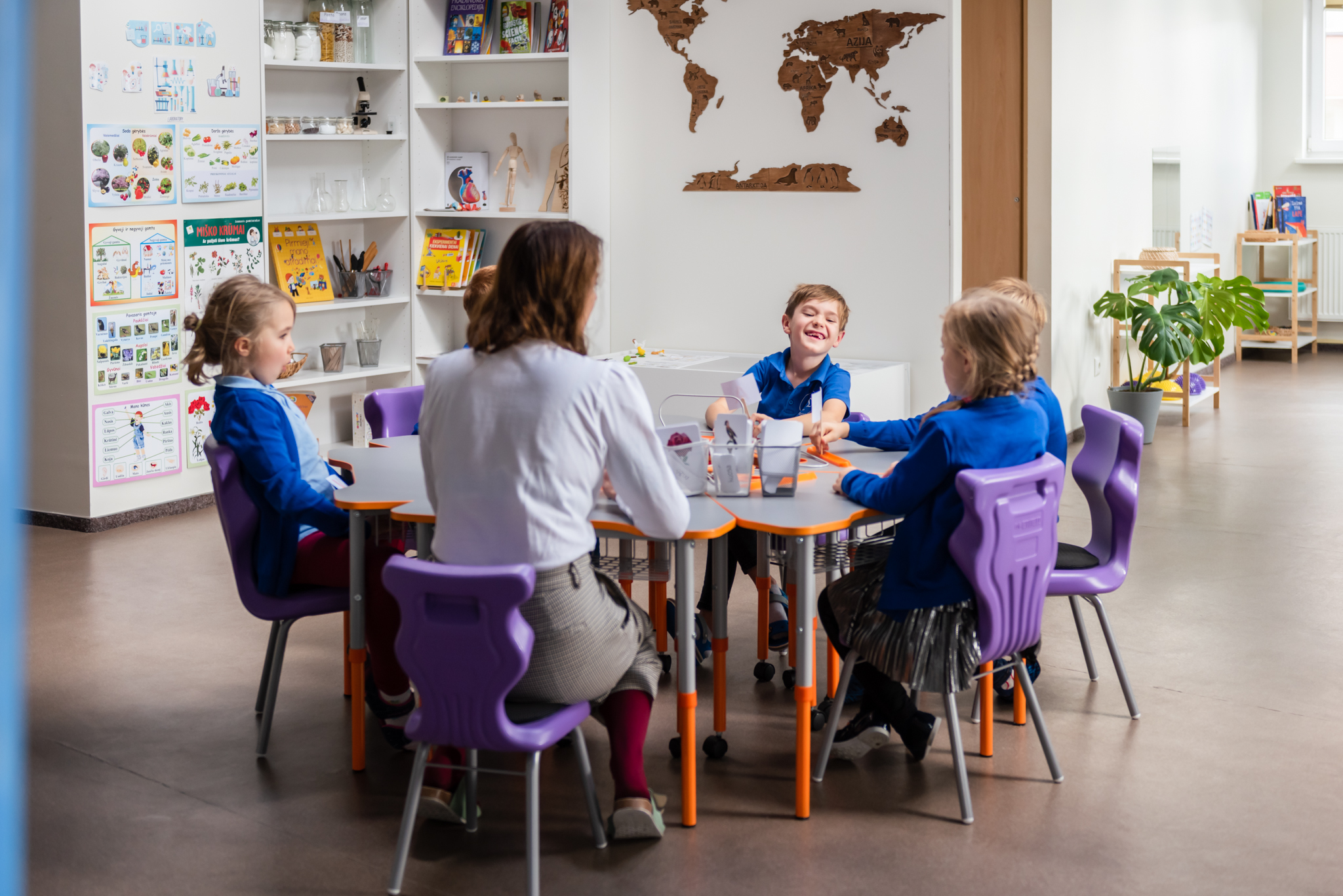
Žaidimai yra labai svarbūs ir reikalingi visiems vaikams, todėl KD tarptautinėje mokykloje mes mokomės žaisdami. Mes tikime, kad žaidžiant mąstymo elementų išmokti yra lengviau nei pamokos metu. Žaisdami, mes laviname kompleksiškesnę mąstymo formą – abstraktųjį mąstymą. Vaikai išmoksta jungti simbolius (pvz. raidės jiems reiškia abėcėlę), pamatyti naujas jų prasmes ir taip mokomasi į situaciją pažvelgti iš skirtingų aspektų.
Žaidimo metu mes mokomės bendradarbiavimo, komandinio darbo, komunikacijos, lyderystės, konfliktų sprendimo, inžinerijos, kūrybiškumo, atsakingumo, ir daugybės kitų gyvenime reikalingų įgūdžių. Mes mokomės žaisdami ir žaisdami mokomės. Todėl KD tarptautinėje mokykloje mes suteikiame vaikams daugiau laiko ir galimybių pasinerti į tikrą žaidimą ir patirti įvairiapusiškesnį mokymąsi.
Independent self-directed education
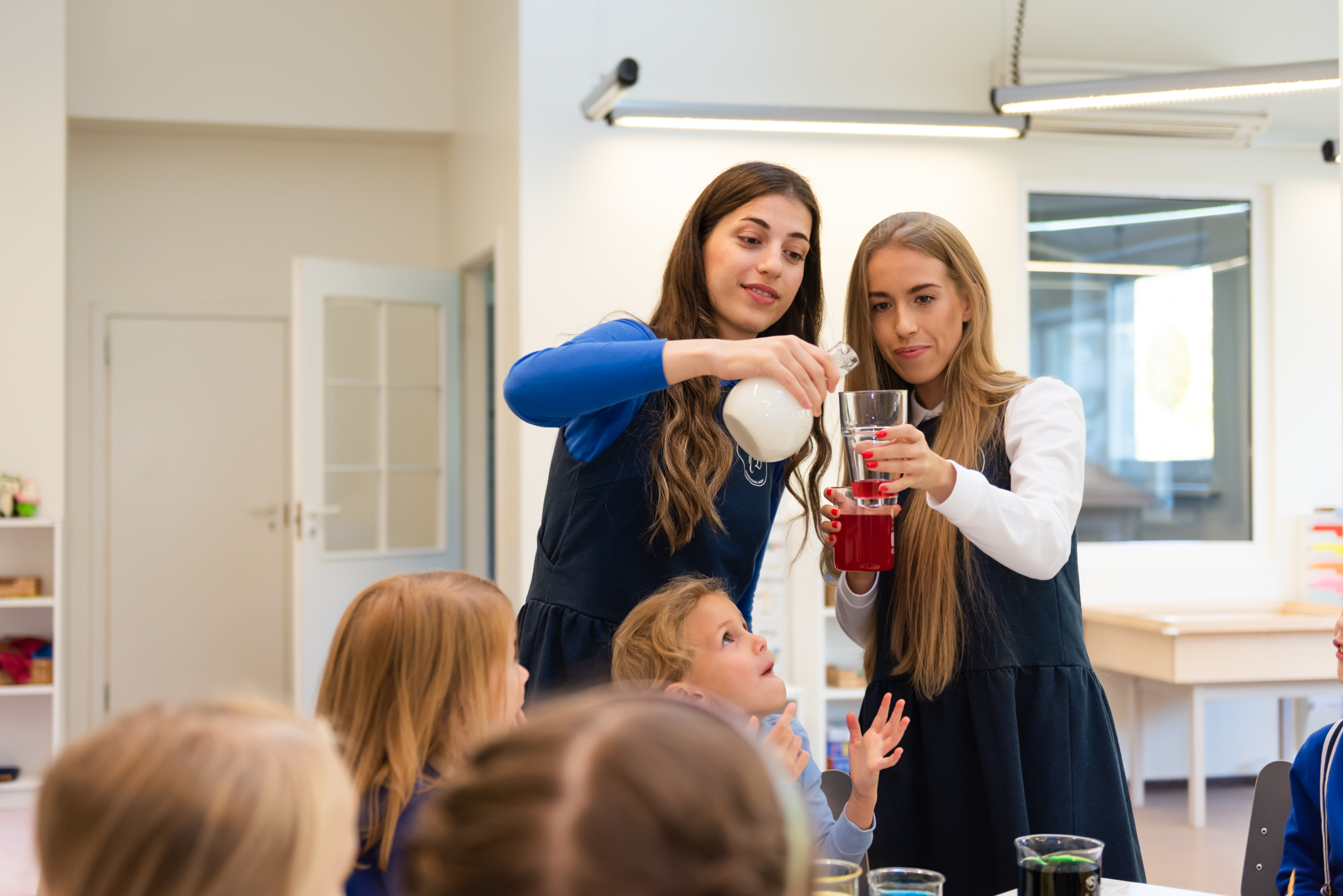
Sėkmingiausias ir efektyviausias mokymasis yra toks, kuris yra incijuojamas pačio besimokančiojo. Mūsų vaikai patys pasirenka sau priimtiniausią veiklą, išsikelia mokymosi tikslus bei įsivertina savo pažangą. Neturėdami griežto ugdymosi tvarkaraščio ar mokymo programos, vaikai gali savarankiškai mokytis, pagal savo poreikius ir gebėjimus, jiems priimtiniausiu rėžimu.
International community
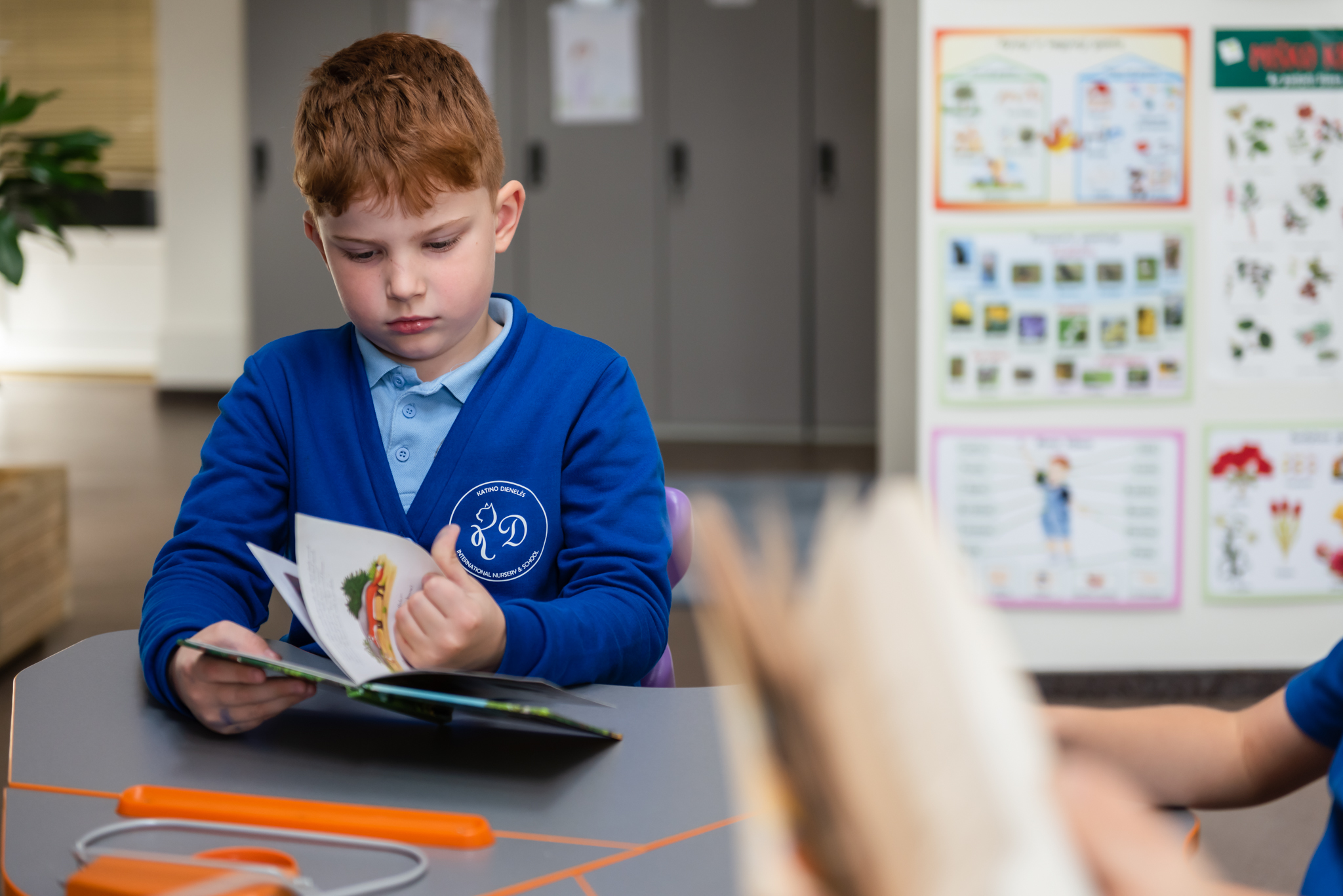
Mūsų bendruomenė labai įvairi – ir šeimos, ir pedagogai yra kilę iš įvairiausių pasaulio kampelių, skirtingų rasių ir religijų, todėl kiekvienas KD tarptautinėje mokykloje yra laukiamas ir mylimas. Mus vienija bendros vertybės, siekiai ir tikslai, kalba, o tradicijas ir vidinę kultūrą atspindi KD tarptautinės mokyklos uniforma, dėvima nuo pačių mūsų mažiausiųjų iki administracijos.
Time

Mūsų ugdymo įstaigoje vaikai turi visą pasaulio laiką, kurį gali skirti savo pomėgiams ir interesams. Jie turi laiko žaisti, socializuotis, laiko mąstyti ar tiesiog pasibūti su savimi. Svarbiausia, kad vaikai turi laiko išmokti mokytis. Gebėjimas valdyti savo laiką sukuria terpę vaikams mokytis spręsti problemas, jas išgryninti, bendrauti ir bendradarbiauti su juos supančia aplinka bei ugdyti, gilinti ir praktikuoti savo įgūdžius, gebėjimus ir žinias. Mes tikime, kad žmogus žino, kaip efektyviai mokytis, jis gali pasiekti viską, ko nori. Tikslingai kuriama ugdymosi aplinka suteikia vaikams galimybes atrasti tai, ko jie patys nori, kas jiems tuo metu yra įdomu ir aktualu, kad galėtų tapti visą gyvenimą besimokančia asmenybe.
The intertwining of age groups
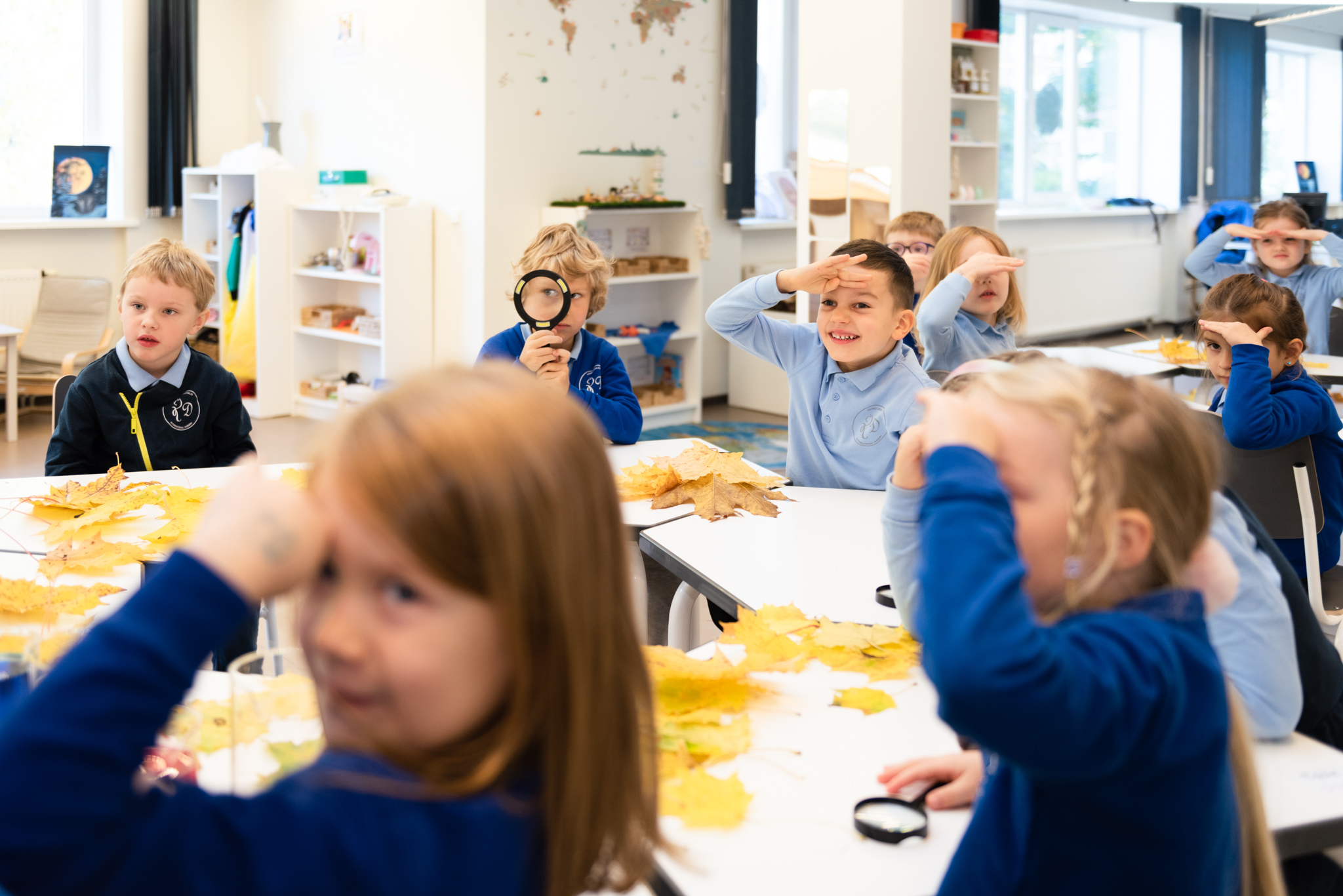
Skirtingo amžiaus vaikai KD tarptautinėje mokykloje sėkmingai bendradarbiauja tarpusavyje, mokosi vieni iš kitų, stebi vyresniųjų gebėjimus, įgūdžius, bando modeliuoti, ugdyti kompetencijas, reikalingas paaugus. Vyresniuosius toks amžiaus grupių persipynimas skatina būti kūrybiškesniais ir žaismingesniais, atsižvelgti į jaunesniųjų gebėjimus ir poreikius. Jaunesniems vaikams toks ugdymo metodas ugdo atsakingumo jausmą, skatina įgyti naujų gebėjimų, ir mokytis bendradarbiavimo, darbo komandoje su skirtingo amžiaus, pomėgių ir intelekto žmonėmis.
Contextual Education
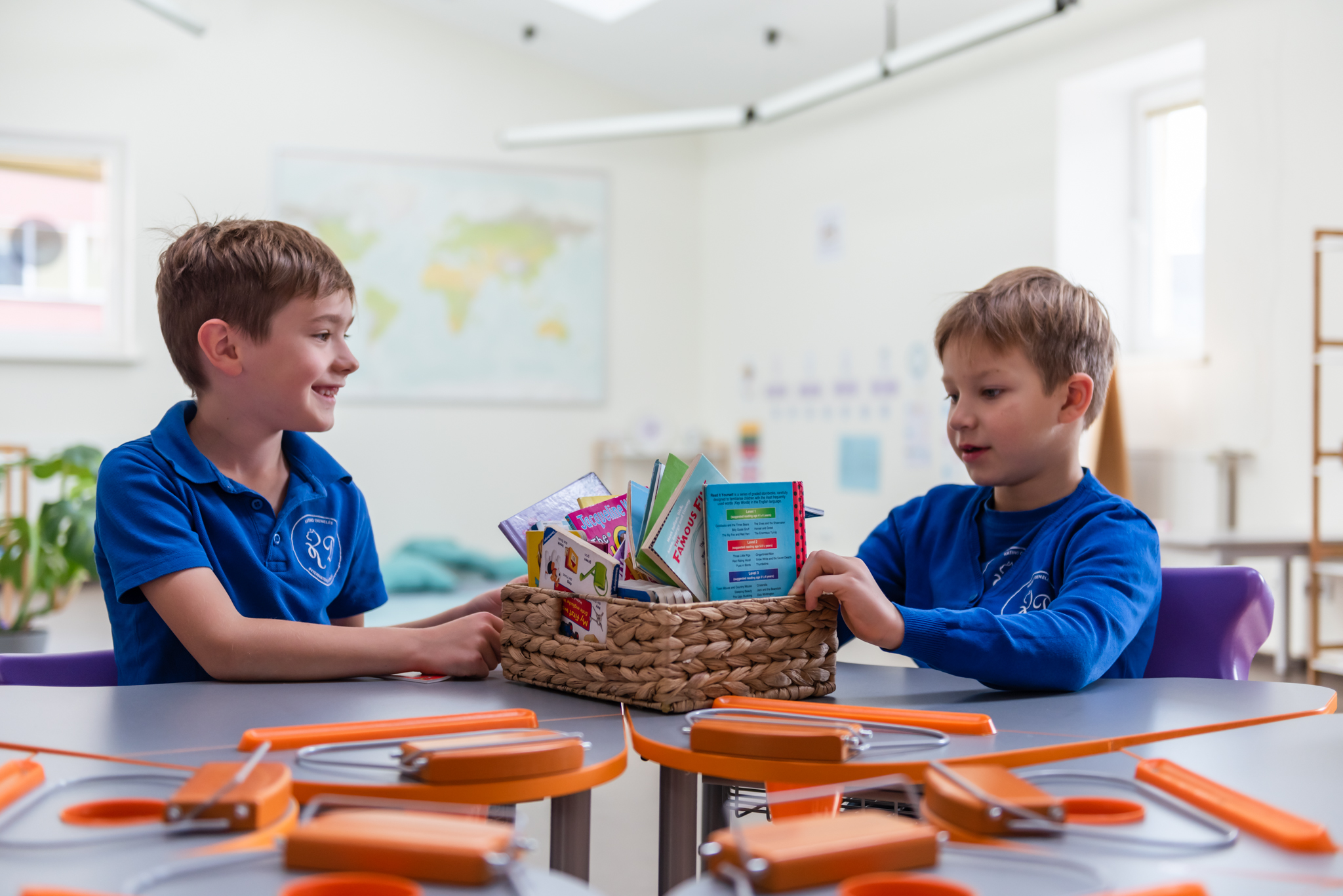
We believe, that child‘s wish and motivation for learning comes from the child himself, who must take responsibility for their educational process, when simultaneously professional educators who are paying attention to child‘s abilities, and purposefully created educational environment and contextual education, encourage child‘s curiosity, understanding of a topic from different perspectives. When the child starts to explore a certain topic in time of all subjects, it automatically becomes more interesting for them, child raises questions, willingly takes upon an activity. For instance, during the space education week children are learning about it through exploration of the world, improves mathematical skills, counting space bodies, comparing sizes and weights, their rotation trajectory, they improve their speech development by reading/looking through books about space, sensory abilities, creativity is educated by arts in the classroom, they pretend to be astronauts and finish some tasks (problem solving) by changing into talking astronaut costumes in the drama centre, etc.
KD tarptautinės mokyklos mokytojas yra kaip gidas, katalizatorius bei navigatorius, padedantis vaikui nuolat tobulėti, todėl mūsų ugdymo sistema yra lanksti, prisitaikanti prie vaikų poreikių, interesų, jų bei aplinkos konteksto. Vaikas yra KD tarptautinės mokyklos ugdymo proceso centre. Kontekstinio ugdymo dalis yra individualizavimas ir diferencijavimas. Vaikas mokosi tada, kai nauja informacija vaikui yra prasminga, mokytojai atsižvelgia į kiekvieno vaiko amžių, jo gebėjimus, vaiko patirtį, gebėjimą susikaupti, šeimos padėtį, poreikius.
